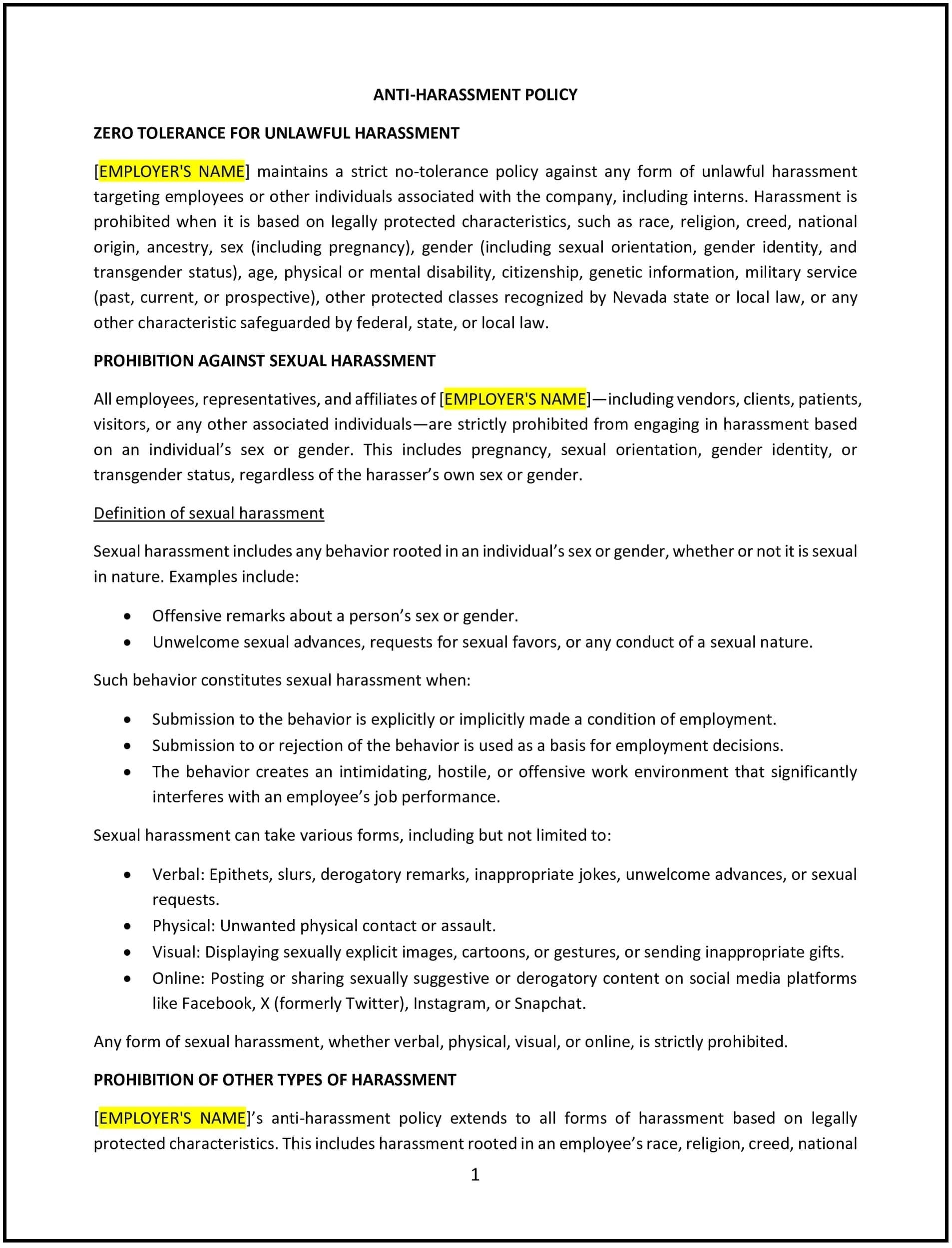Got contracts to review? While you're here for policies, let Cobrief make contract review effortless—start your free review now.

Customize this template for free
Anti-Harassment policy (Nevada)
This anti-harassment policy is designed to help Nevada businesses create a workplace free from harassment and discrimination. Whether dealing with inappropriate behavior between employees, clients, or vendors, this policy provides clear guidelines for addressing and preventing harassment in the workplace.
By adopting this policy, businesses can foster a respectful and inclusive environment, reduce the risk of legal disputes, and demonstrate a commitment to ethical conduct.
How to use this Anti-Harassment policy (Nevada)
- Define harassment: Clearly define what constitutes harassment, including but not limited to verbal, physical, or visual harassment based on race, gender, sexual orientation, disability, or other protected categories.
- Set reporting procedures: Provide clear instructions for how employees should report harassment, ensuring that there is a confidential and accessible process for complaints.
- Encourage prompt action: Emphasize the importance of addressing harassment complaints immediately and thoroughly, outlining the process for investigating and resolving complaints.
- Establish non-retaliation: Make it clear that employees will not face retaliation for reporting harassment or participating in an investigation, protecting them from further harm.
- Include training and awareness: Specify that all employees should receive regular training on anti-harassment policies and appropriate workplace behavior.
- Clarify consequences: Outline the consequences for individuals found guilty of harassment, which may include disciplinary actions up to termination.
Benefits of using this Anti-Harassment policy (Nevada)
This policy provides several key benefits for Nevada businesses:
- Promotes a respectful work environment: Encourages a workplace where all employees feel valued and treated with respect, improving overall morale and productivity.
- Reduces legal risk: Clearly defined harassment policies help businesses avoid costly legal disputes and claims of workplace harassment.
- Supports fairness: Ensures that all employees are treated equally and fairly, regardless of their background or protected characteristics.
- Enhances compliance: Helps businesses comply with Nevada state laws and federal regulations related to harassment and discrimination in the workplace.
- Builds trust: Demonstrates the company’s commitment to maintaining a positive, harassment-free workplace, increasing employee confidence and trust in leadership.
Tips for using this Anti-Harassment policy (Nevada)
- Communicate the policy to all employees: Ensure all employees are aware of the policy and understand what constitutes harassment through regular communication and training.
- Take immediate action: Address any complaints of harassment promptly and investigate thoroughly to ensure all allegations are handled fairly and appropriately.
- Provide a clear reporting mechanism: Make it easy for employees to report harassment confidentially and without fear of retaliation.
- Regularly review the policy: Periodically update the policy to reflect any changes in Nevada state law, federal regulations, or organizational changes.
- Support employees: Offer support for those who report harassment, ensuring they feel protected and their concerns are taken seriously.